PoliticsNow: Labor to back bill to split CFMEU
The ALP shadow cabinet has agreed in principle to support a bill that is expected to lead to the CFMEU’s mining and energy division, as well as its manufacturing division, breaking away.

- NSW, Vic lose AAA ratings
- Labor flags not backing IR bill
- Why Germans could land in Australia
- Giuliani tests positive
Welcome to our live political coverage amid the fallout from the coronavirus pandemic. WA premier Mark McGowan confirmed the state would officially open to the country’s two most populous states. Scott Morrison has opened up the last parliamentary week of the year questioning Anthony Albanese’s hold on the Labor leadership. Attorney-General Christian Porter says the federal government’s industrial relations bill will give casual workers the strongest pathway to convert to permanent employment. Meanwhile, Opposition industrial relations spokesman Tony Burke has signalled that Labor will not support the federal government’s industrial relations bill.
Ewin Hannan 9pm: Labor to back bill to split CFMEU
Federal Labor is likely to back the Morrison government’s bill to break up the CFMEU, clearing the way for the Coalition to get the union demerger proposal passed by parliament this week.
Sources said the ALP shadow cabinet agreed in principle on Monday night to support the bill which, if passed, is expected to lead to the union’s mining and energy division, as well as its manufacturing division splitting from the CFMEU after a falling out with construction and maritime officials .
The ALP move came after construction division national secretary Dave Noonan had urged Labor and the ACTU to oppose the bill.
While Mr Noonan defended the union’s Victorian secretary John Setka, the mining and energy division secretary Tony Maher stepped up his attacks on the construction division, accusing it of “hostile number-crunching” and being driven by self-interest.
Union sources said an ACTU-organised meeting of union leaders held on Monday did not explicitly oppose the bill but agreed to seek copies of the proposed legislation.
Labor industrial relations spokesman Tony Burke had earlier left open the prospect of the ALP supporting the bill.
“If it’s something that’s simply recognising and trying to find a way through in certain situations to recognise the democratic rights of members within a division then that might be something where there’s a more constructive way forward,” he said.
The bill will go to the ALP caucus on Tuesday and the government will seek to get it passed this week.
But Mr Noonan said the proposed laws would have a “disruptive effect” on the entire union movement.
Speaking about Mr Setka, he told the ABC “no one’s perfect” and that he had had “plenty of arguments with him”. “But that’s the nature of a democratic organisation,” he said.
Mr Maher has signalled his members will consider splitting from the “dysfunctional union”, and holding talks with Mr Porter about the proposed laws to allow the break-up of the union.
The union’s former national secretary, Michael O’Connor, also flagged the manufacturing division would examine leaving the union.
In a message to mining and energy division members on Monday, Mr Maher said the purpose of being part of an amalgamated union should be to give workers a bigger voice and more power.
“It should provide solidarity and strength in numbers to achieve better outcomes for members. Since amalgamation, our division has been committed to this vision, through many ups and downs,” he said.
“However, over the past couple of years solidarity has been replaced by self-interest and strength in numbers has been replaced by hostile number-crunching.
“The construction division has made it clear that they will use their numbers to steamroll smaller divisions, force decisions in their favour and run the CFMEU as a construction union.
“We have seen this through poaching members from smaller divisions, tearing down the leadership of national secretary Michael O’Connor and shutting down discussion and debate in meetings.”
AFP 8.30pm: China calls for new talks with US after Biden win
China’s top diplomat has called for the resumption of talks with the incoming US administration of president-elect Joe Biden, as relations between the world’s two largest economies continued to nosedive.
Beijing and Washington have locked horns over issues from trade and China’s human rights record to its expansionist ambitions in the South China Sea.
But speaking during a video call with the board of the US-China Business Council on Monday, Foreign Minister Wang Yi said “the two sides should work together”.
“We need to strive to restart the dialogue, get back on the right track, and rebuild mutual trust in the next phase of China-US relations,” he said, according to a readout of his remarks on the foreign ministry website.

His comments come days after Washington unveiled travel restrictions for members of the Chinese Communist Party over human rights abuses in the restive region of Xinjiang, as relations between the two tumble to the lowest point in decades.
More sanctions are expected this week, with Bloomberg reporting on Monday that the US was set to slap at least a dozen officials with asset freezes over their role in the disqualification of pro-democracy lawmakers in Hong Kong.
China’s relations with US allies, most notably Australia, have also plummeted in recent weeks.
Amid a growing spat between Beijing and Canberra, a senior Chinese official sparked outrage last Monday when he tweeted a staged image of an Australian soldier holding a bloody knife to an Afghan child’s throat.
But China’s top diplomat appeared to strike a more conciliatory tone from his so-called “Wolf Warrior” colleagues on Monday, saying the two sides should work to “expand consensus” and co-operation.
“For problems that cannot be immediately resolved, we need to maintain a constructive attitude to manage the situation to avoid intensifying and escalating the overall situation of China-US relations,” Mr Wang said.
Mr Biden is set to assume the presidency on January 20, succeeding Donald Trump, who launched a bruising trade war against China and targeted the global ambitions of groups including telecoms giant Huawei.
The president-elect is expected to be more measured in tone and knit back together tattered alliances on the global stage.
But he has told US media that he will keep Donald Trump’s trade war tariffs on China for the time being when he moves into the Oval Office.
READ MORE: Double blow for Trump
AFP 7.45pm: Brexit talks stuck on fish, fair trade and enforcement
Negotiations on a post-Brexit trade deal between Britain and the European Union are still blocked over fishing rights, rules for fair trade and an enforcement mechanism, European diplomats said Monday.
But talks will continue despite the tight timetable for the European Parliament to ratify an accord before the UK leaves the single market on December 31, with one source stressing that “substance will take precedence over the calendar.”
READ MORE: Saudi reopens Palestinian wound
Rosie Lewis 7pm: Lambie backs foreign relations bill
Foreign Minister Marise Payne has the numbers to pass her foreign relations laws in full as early as Tuesday, after Senate crossbencher Jacqui Lambie joined with One Nation in backing the federal government’s new powers.
The controversial laws, allowing Senator Payne to veto deals between the states, councils, universities and foreign governments, have been split across two bills.
The substantive bill handing Senator Payne the veto powers, which can apply to future and retrospective deals such as the Victorian government’s Belt and Road Initiative agreement with China, passed through both houses of parliament last week.
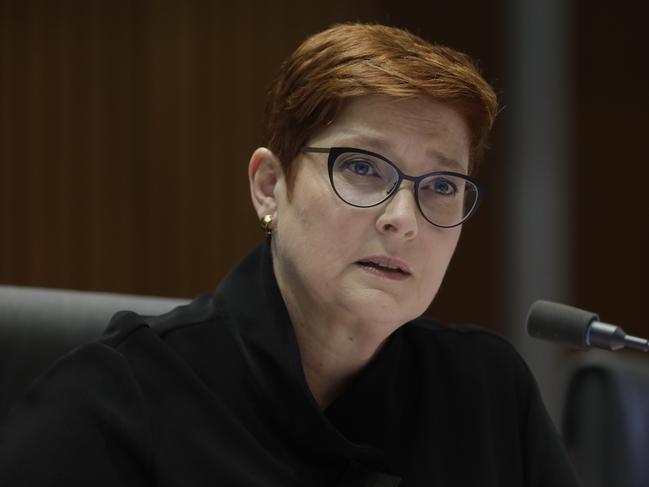
But a consequential amendments bill, which changes the Administrative Decisions (Judicial Review) Act so that Senator Payne’s decisions under the foreign relations bill are not subject to court challenges, remains stuck in the parliament.
Independent South Australian crossbench senator Rex Patrick is trying to block the bill so there are more avenues for judicial review.
While he offered to negotiate with the government, he was told on Monday that was not necessary because Senator Lambie would give Senator Payne the final vote required to pass the consequential amendments bill.
Senator Lambie’s spokesman confirmed that was true, with expectations it would pass the Senate on Tuesday.
Crossbenchers also expect Labor will ultimately vote with the government despite its deputy leader Richard Marles warning the laws were “half-baked”.
“The consultation hasn’t been done with a whole lot of the entities concerned, particularly the university sector. We would like to sit down with the government and actually talk through how we can make this legislation better, so that it achieves the objective that is being set out in the legislation,” Mr Marles said.
Senator Payne has refused since Friday to respond to questions about why it was necessary for the consequential amendments legislation to receive parliamentary support, with her office pointing to its explanatory memorandum.
“The decisions made under the foreign relations bill will involve complex political considerations relating to Australia’s foreign policy and foreign relations,” the memorandum states.
“These indicia are within the remit of the commonwealth government and Minister for Foreign Affairs to determine and manage. As such, it is inappropriate for these decisions to be open to judicial review under the ADJR Act.”
Centre Alliance senator Stirling Griff said the problem with the laws was Senator Payne did not have to provide any reasons for vetoing deals between other governments, which he labelled “just crazy”.
David Rogers, James O’Doherty 6.56pm: Treasurer shrugs off credit downgrade
NSW treasurer Dominic Perrottet played down the ratings downgrade, saying NSW had experienced “challenge upon challenge in 2020”.
He said “drought, bushfires and then COVID-19” have all “hurt our revenue base”.
Mr Perrottet said in addition to lower revenue, the government had spent $29bn on economic stimulus and support in response to the COVID crisis.

He noted that ratings agency Moody’s reaffirmed the AAA credit rating last week.
“The ratings agencies noted NSW’s history of sound financial management, our willingness to tackle COVID-19 head-on when it mattered, and a strong commitment to return the balance sheet to a sustainable footing,” he said.
“Our economic response has been about creating as many jobs as possible, supporting businesses through this time and maintaining record level of investment in infrastructure.
“We have begun to see green shoots as we recover from the first recession in a generation and our priority is to return people to work and the economy to solid and sustained growth, with a medium term focus on fiscal repair of the balance sheet,” he said.
The stable outlook reflects S&P’s expectation that NSW’s budgetary performance will improve during the next few years as the economy climbs out of a Covid-19-induced recessionBut new borrowings will see NSW’s debt rise substantially to levels consistent with AA+ rated peers.
Meanwhile S&P said Victoria’s operating and after-capital account deficits and debt burden had “deteriorated sharply” as a result of the coronavirus pandemic, mobility restrictions and a big-spending budget.
Read more: Victoria, NSW lose AAA credit rating
Agencies 6.26pm: Sinovac secures $500m from Hong Kong firm
Chinese pharmaceutical firm Sinovac Biotech has secured half a billion dollars in extra funding to produce its Covid-19 vaccine, it said Monday, as the country races to roll out a jab for general use.
Beijing has largely brought the virus under control, with only 281 active cases still receiving treatment, according to official figures.
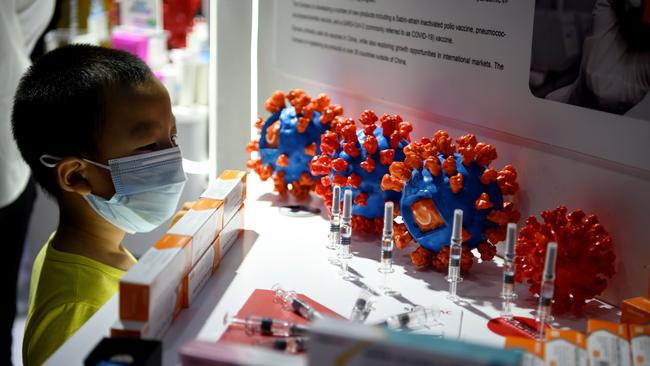
But it has promised to make its vaccines available as a “global public good” as it seeks to counter global criticism for its early handling of the pandemic.
Sino Biopharmaceutical Limited, a Hong Kong-listed medical research firm, said on Monday that it will invest $515 million for the development and production of CoronaVac, one of Sinovac’s most advanced vaccine candidates.
Sinovac -- one of China’s leading vaccine producers -- said the funding will be used for the “further development, capacity expansion and manufacturing” of CoronaVac.
It added it hoped to be able to manufacture 600 million doses by the end of the year.
Sino Biopharmaceutical will receive a 15 percent share in a Sinovac subsidiary, Sinovac Life Sciences, under the agreement.
Although regulators have yet to approve China’s vaccines for mass distribution, the country has approved some advanced candidates for emergency use. Since July a range of people from state employees to international students have been given jabs.

CoronaVac is being tested in multiple countries including Brazil, where final-stage clinical trials for the jab have restarted after hitting a setback in November when a volunteer experienced an “adverse incident.” The vaccine “has reached critical milestones in clinical trials in Asia and Latin America,” Sinovac CEO Yin Weidong said in the statement.
The company earlier said almost all its employees and their families have voluntarily taken the vaccine.
Sinopharm, another Chinese vaccine maker, said in November that nearly a million people have already taken its experimental Covid-19 vaccine.
Last week Britain became the first Western country to approve a vaccine for general use, piling pressure on other countries to follow suit swiftly.
Greg Brown 5.46pm: MP urges vigilance amid Christmas terror threat
Labor MP Anthony Byrne, the deputy chair of the parliamentary intelligence committee, has warned Australians to be vigilant to terror threats over Christmas as he declared children as young as 14 were being radicalised online.
Warning against complacency to the terror threat, Mr Byrne said “our agencies believe that there are those even now in our country who wish to do us harm”.
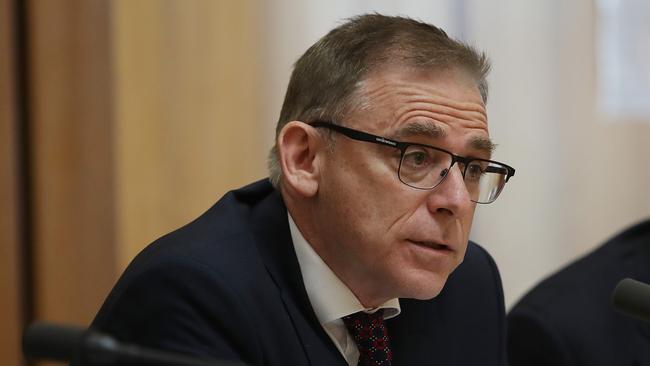
“And the intended perpetrators of attacks driven by these twisted evil ideologies know that the Christmas/New Year period is a special time of year and so they would see that an attack would be damaging for morale at this time,” Mr Byrne said in a speech to parliament.
“We must all remain vigilant and aware without being alarmed. Fortified by the knowledge that our security and intelligence agencies are working around the clock to keep us safe.
READ MORE: Radical Islamists ‘fishing’ in teen programs
“Together in this most challenging year we have seen off the worst of the COVID-19 pandemic. Together we will also meet and defeat those who seek to scare and divide us with their hateful ideologies.”
Mr Byrne said he had been told the Australian Security Intelligence Organisation were seeing teenagers radicalised online.
“At the same time ASIA has told us that the threat from right-wing extremism is growing and now comprises between 30 to 40 per cent of ASIO’s caseload,” Mr Byrne said.
“There have been multiple arrests, convictions, and disruptions this year alone.
“But we cannot be complacent. The terrorism threat level is at probable which means a terrorist event is likely.
“That means that our agencies believe that there are those even now in our country who wish to do us harm.”
Mr Byrne said Melbourne experienced its eighth terror attack last month and it “virtually went unnoticed”.
“Momema Shoma, who was already serving a lengthy prison term for terrorism, allegedly attacked another female inmate,” Mr Byrne said.
“Recently a man in Queensland was arrested and charged with one count of acts done in preparation or planning of a terrorist act.”
Read more: Benbrika ‘terror threat if freed’
Stephen Lunn 5.26pm: Big Australia ‘not what the people want’
Ramping up immigration to pre-COVID levels as part of a Big Australia agenda is not what the majority of people want, environment group Sustainable Population Australia warns.
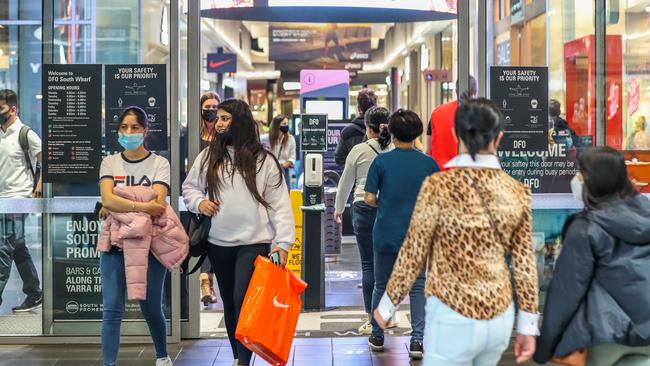
The group, which lists former Labor foreign minister Bob Carr among its patrons, said Australia was “big enough already” and welcomed the projected slowing of Australia’s population over the next decade.
“Opinion polls repeatedly show that a majority of Australians do not want our population to grow much beyond its present size of nearly 26 million,” SPA president Sandra Kanck said.
She was responding to the nation’s first Population Statement released last week by Population Minister Alan Tudge, which projected population growth of 1.1 per cent through to 2031, after a 1.6 per cent average over the past decade. “The slowing of Australia’s population growth due to COVID-19 has provided a fortuitous opportunity to reset our priorities for the future of Australia,” Ms Kanck said.
Read more: Aussies told not to flock to shopping malls
Agencies 4.36pm: Queen first in line for vaccine rollout
The Queen will receive the Pfizer-BioNTech coronavirus vaccine within weeks, as the biggest immunisation program in British history begins this week.
The monarch, 94, and her 99-year-old husband, Prince Philip, are in line to get the jab early in the rollout, which gets under way on Tuesday, due to their age and will not receive preferential treatment, several newspapers have reported.

Britain’s most senior royals will “let it be known” they have been given the inoculations “as a powerful counter to the anti-vaccination movement,” The Sunday Times said.
The Mail on Sunday added they hope “to encourage more people to take up the vital jab”.
The Queen has spent much of the pandemic in self-isolation in Windsor because of her age, and will this year forego her traditional family Christmas at her Sandringham estate in eastern England with other royals.
A Buckingham Palace spokeswoman declined to comment on the vaccination reports, noting “medical decisions are taken personally”.
Britain last week became the first country in the world to approve the Pfizer-BioNTech vaccine, and health officials have already drawn up criteria based on age and vulnerability to decide who will receive it first.
AFP
Read more: Prince Harry shattered over Remembrance Day snub
Rachel Baxendale 3.41pm: AAA decision a ‘double downgrade disaster’
Victorian Opposition Leader Michael O’Brien dubbed the S&P decision a “double downgrade disaster”, saying Victoria had maintained a AAA credit rating with S&P since 2003.
“As a result of this downgrade, Victoria will now incur higher interest repayments on the $155 billion of debt included in last month’s state budget,” Mr O’Brien said.
“This will mean money that would have typically been spent on the provision of government services, such as police, firefighters, teachers and nurses, will be used to service Victoria’s unprecedented debt.

“Blowing the AAA is another sign that Labor’s reckless management is a threat to our state’s recovery that Victorians cannot afford.”
Coalition treasury spokeswoman Louise Staley said the downgrade demonstrated “how worried world financial experts are about the Andrews Labor government and its ability to manage budgets.”
“Successive Victorian governments have managed to maintain Victoria’s AAA credit rating to preserve our international reputation as a responsible manager of government funds and also to minimise interest repayments.
“Considering how many billions of dollars Daniel Andrews and Labor have thrown away on budget blowouts and government waste, it is clear that they now owe Victorians an explanation as to why in the coming years, Victorian taxpayers will be spending millions of dollars servicing debt rather than funding essential services.”
Treasurer Tim Pallas is due to address the media regarding the downgrade later on Monday afternoon.
EWIN HANNAN 3.28pm: Bosses face jail, heavy fines over wage thefts
Criminal sanctions, including jail and multimillion-dollar penalties, would apply to employers found to have engaged in deliberate and systemic wage theft of employees.
Attorney-General Christian Porter said on Monday the industrial relations bill would create a new criminal offence for the “most egregious examples of genuine wage theft”.
The offence would apply in circumstances where a national system employer dishonestly engaged in a deliberate and systematic pattern of underpaying one or more of their employees.
The new offence will carry a maximum penalty of up to four years imprisonment or a $1.1 million penalty – or both – for individuals, and up to $5.55 million for a body corporate.
Individuals convicted of the criminal offence would be automatically disqualified from managing corporations for a period of five years under the Corporations Act\.
READ the full story here
Rachel Baxendale 3.06pm: Throwback to Cain-Kirner governments: Kennett
Former Victorian premier Jeff Kennett said S&P’s decision to downgrade Victoria’s credit rating from “AAA/Watch Negative” to “AA/Stable” was “disappointing”, likening the Andrews government’s management of finances to that of the Cain and Kirner Labor governments in the late 1980s and early 90s.
The Kennett Liberal government inherited $33bn worth of debt when it won office in 1992 ($63.45bn in today’s money, adjusted for inflation), and had reduced that debt to about $5bn ($9.61bn today) by the time they lost government in 1999.
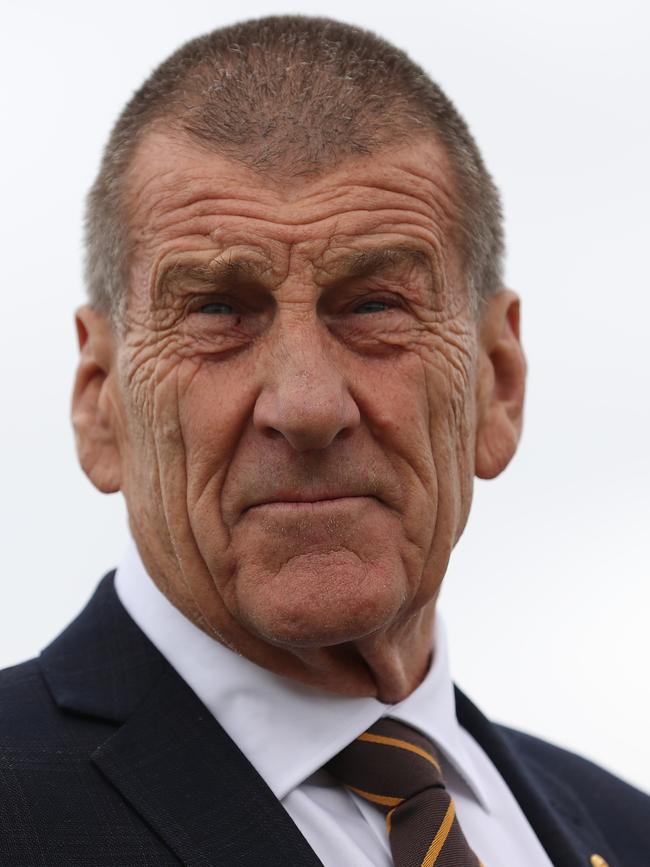
“It’s disappointing,” Mr Kennett told The Australian of Monday’s downgrading.
“It is not the end of the world, but the level of debt and the mismanagement of the current government reminds me of their predecessor in the 80s, and the reality is there is nothing the government is doing now that leads me to have any confidence given their extraordinary blowout in public debt that we will be anything else than in a worse position in six months, in two years and five years.
“Importantly the level of debt is so obscene it will lead to a huge amount of wastage in the projects that they have nominated and are currently delivering, all of which are over-budget and behind time.
“The (projects) they have nominated for the future, there is no control, there is no legal agreement that will give the public any confidence that this administration will be able to manage an even further escalation in state debt.
“In other words, this is not a challenge for the current generation, but certainly will be for the next, and I fear, the one after. So while I think my children, with support from their own efforts and their parents’, might get through their lives, I fear for the wellbeing and security of my grandchildren.”
READ MORE: Victoria, NSW lose AAA credit rating
Paul Garvey 2.54pm: WA finally to open borders with NSW, Victoria
Western Australia will finally reunite with NSW and Victoria from midnight after WA premier Mark McGowan confirmed the state would officially open to the country’s two most populous states.
There had been concerns that WA could delay its removal of mandatory quarantine restrictions for arrivals from NSW and Victoria after a NSW nurse contracted coronavirus and two German visitors avoided quarantine and flew from Sydney to Melbourne.
Mr McGowan however on Monday said the state would push ahead with its plans to reunite with the two states after eight months of unprecedented restrictions.
He said the lack of any further spread in NSW and the identification and isolation of all of the NSW nurse’s close contacts meant it was safe to reopen to NSW and Victoria.
The formal lifting tonight will allow families to reunite in time for the Christmas break, and will leave only South Australia as the last state subject to domestic travel restrictions. Both WA and Queensland still require arrivals from SA to go into quarantine for two weeks.
WA lifted its travel restrictions for arrivals from Queensland, Tasmania, SA, Northern Territory and the ACT on November 14, but reintroduced restrictions for SA less than two days later after the state suffered an outbreak.
Mr McGowan made it clear that the state would not hesitate to reintroduce its hard border restrictions in the event of further outbreaks.
“All through this pandemic I’ve made it crystal clear that WA will take a considered, cautious careful approach to our decision making,” he said.
“We’ve come so far here in WA, there’s no point in taking unnecessary risks.”
More than 30,000 people have arrived in WA from interstate since the first border restrictions were eased on November 14.
Adeshola Ore 2.45pm: Anyone who has a job ‘is better off’
Scott Morrison says anyone back in a job post the coronavirus pandemic will be better off, as Labor used question time to probe the federal government’s proposed industrial relations changes.
Anthony Albanese asked the Prime Minister to confirm if “no worker will be worse off as a result of his industrial relations change.”
“If you are a worker, who is not in any job, you are worse off. And so our plans are to get
workers who are not in jobs back into jobs,” Mr Morrison told parliament.
Adeshola Ore 2.22pm: Albanese must be under a bit of pressure: PM
Scott Morrison has opened up the last parliamentary week of the year questioning Anthony Albanese’s hold on the Labor leadership, as the Opposition Leader attacks him over childcare.
Mr Albanese has faced leadership tensions ever since rogue Labor MP Joel FItzgibbon quit the frontbench last month over Labor’s climate change policies. As Labor spruiked their childcare plans and a new online calculator aimed to show the savings for their parents via their policy, Mr Morrison took aim at Mr Albanese.
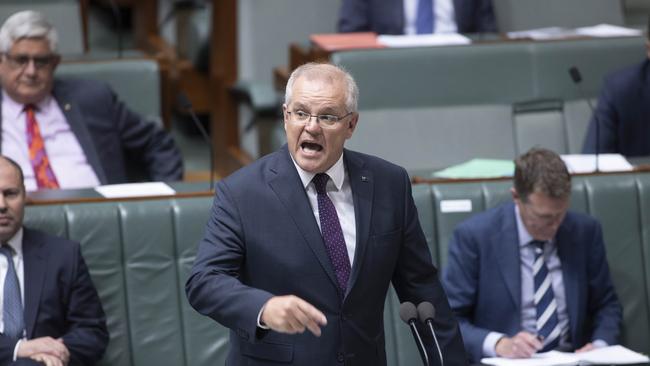
“The Leader of the Opposition is very lippy today, he must be under a bit of pressure,” he told parliament.
“What I know is the Leader of the Opposition and the Labour Party, every time they promised to fix a problem, all you end up with is the bill.”
READ MORE: Albanese responds to leadership speculation
David Rogers 1.50pm: NSW joins Victoria with S&P downgrade
A pretty big shock as S&P Global Ratings downgrades NSW.
The state’s long-term credit rating has been cut by one notch to AA+/Stable from AAA/Negative.
The ratings agency cites the rising debt burden induced by COVID.
With the two formerly AAA rated states – VIC & NSW – falling, questions must be asked about Commonwealth’s AAA rating.

Victoria lost its rolled-gold AAA credit rating, with ratings agency S&P Global Ratings cutting its long-term rating on the state by two notches to “AA/Stable” from “AAA/Watch Negative” citing a weaker fiscal outlook.
The prolonged lockdown in the state due to two coronavirus outbreaks this year has led to more significant effect on the state’s economy than elsewhere in Australia and the government’s path to fiscal repair would be more challenging, the international ratings agency said.
READ the full story here
Angelica Snowden 1.34pm: Brisbane relaunches 2032 Olympic bid
Australia’s Olympic boss has declared Brisbane’s chances of hosting the 2032 Games is “very strong” as the committee revealed it has relaunched its bid.
Olympics update from the Premier and AOC President John Coates https://t.co/UigSGz3MGE
— Annastacia Palaszczuk (@AnnastaciaMP) December 6, 2020
The campaign to bring the major sporting event to the Sunshine State will be based on Queensland’s handling of the health crisis, its ability to hold sporting events through the pandemic and using the Games as an opportunity to reboot the state’s economy.
Australian Olympic Committee president John Coates said four or five other rival bids would be competing against Brisbane but insisted his bid was well placed.
“Our bid in comparison to the rest of the world is a very strong bid,” he told reporters on Monday morning.
Queensland Premier Annastacia Palaszczuk said authorities would monitor the Tokyo Olympics in a post COVID world to ensure future games in Queensland would be safe.
“Today was very significant in that we were able to discuss letting our Olympics task force, the working group, back together in the New Year, to look at the next stage,” Ms Palaszczuk said.
“It is very important from a Queensland point of view that we get to see what is happening with the Tokyo Olympics in this post COVID world and hopefully with the positive signs of the vaccine, things could be very positive in the future,” she said.
Reports out of China declared the cities of Chengdu and Chongqing were teaming up to launch a joint bid, but both Mr Coates and Ms Palaszczuk disputed this claim.
“We haven’t seen an official expression of interest, but we respect all of the competitors,” the AOC president said.
“There’s Jakarta, there’s potentially a bid from India, the Netherlands and from Germany. We respect them all, but we are just concentrated and focused on our own merits.”
With NCA Newswire
READ MORE: How Brisbane plans to host Olympics
Remy Varga 12.39pm: ADF rejecting Victorian hotel request ‘disappointing’
Victorian Police Minister Lisa Neville says she’s disappointed the Australian Defence Force knocked back the state government request for troops to guard floors at the hotel quarantine program.
But Ms Neville said Victoria Police were “ready and able” to step up, and the ADF would still be providing assistance similar to what was already being provided to other states and territories.
She said the ADF decided to reject the request for troops to monitor hotel floors with Victoria Police after speaking with the health team and inspecting the hotels.
“I was disappointed by that but at the same time they will play a really critical role,” she said.
“We just rejigged a little bit about what they will do and what police will do but police will be the lead on security and enforcement.”
International flights arrived in Melbourne for the first time in more than five months after the first iteration of Victoria’s hotel quarantine program unleashed a devastating second wave that claimed the lives of 800-people.
Despite there being a 160-cap on the number of arrivals, 253 people are expected to arrive in Melbourne on Monday.
READ MORE: Cater — Religious reforms can’t come soon enough
Adeshola Ore 12.15pm: IR bill ‘strongest pathway to permanent employment’
Attorney-General Christian Porter says the federal government’s industrial relations bill will give casual workers the strongest pathway to convert to permanent employment.
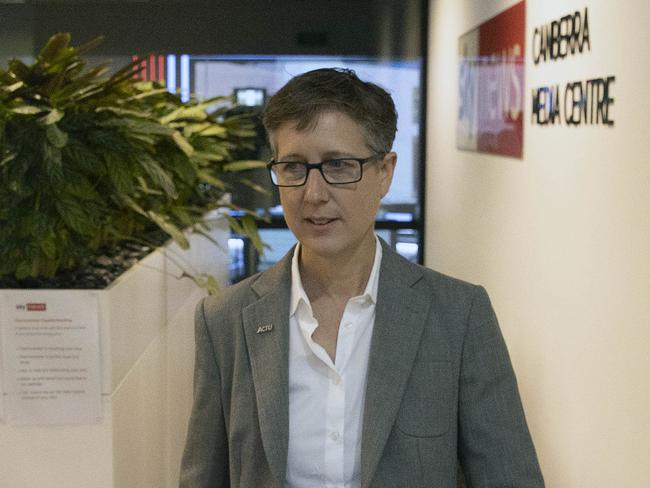
Under the proposed changes, employers would be required to offer part-time or full-time roles to people after 12 months if they have worked a regular pattern of hours for the previous six months.
“It extends the right to convert across all sectors,” he told reporters in Canberra on Monday.
“We greatly strengthen the employee’s rights in the process of conversion.”
ACTU secretary Sally McManus said the bill gave employers a “get out of jail free card” because they could reject employee’s requests on reasonable grounds.
Mr Porter said there would be a limited number of reasons that would allow an employer to reject a casual worker’s conversion to permanent employment.
“There are obvious ones like if the position was no longer going to be available in three months time or if offering that position could cause the business to go under,” he said.
“What the bill says is if the employer must offer this right to convert to permanent, full time or part time, unless there are very, very good reasons why the business just can’t do that.”
Mr Porter described the Morrison government’s industrial relations proposals as a “consequential change” to the employment landscape.
“The ideological IR brigade will write that it’s just tinkering around the edges and it’s too modest. Some people will describe it as radical. It is clearly neither of those two things,” he said.
“It’s clearly not a revolutionary change to the system. It’s an incremental, consequential change that will hopefully have a passage through parliament and create jobs by removing barriers to job growth.”
READ MORE: Job listings jump 14pc as Victoria reopens
Adeshola Ore 11.47am: Labor casts doubt over support for backing IR bill
Opposition industrial relations spokesman Tony Burke has signalled that Labor will not support the federal government’s industrial relations bill.
Under the proposed changes, employers would be required to offer part-time or full-time roles to people after 12 months if they have worked a regular pattern of hours for the previous six months. But ACTU secretary Sally McManus said the bill had a loophole which meant employers could reject employee’s requests on reasonable grounds.
Mr Burke said the bill would remove secure employment from workers.
“Certainly what’s been described in the papers today, I can’t see us supporting,” he told the ABC.
“I had hoped that the government would bring forward a consensus from the working groups that they did.”
“The principle that that will apply as our test is whether or not the legislation provides jobs with decent pay that are secure. That’s our test. At the moment what’s being announced today fails that test.”
READ MORE: McManus urges Senate to block IR bill
Adeshola Ore 11.28am: Coalition dragging feet on IR reform: Albanese
Anthony Albanese has accused the Morrison government of dragging its feet on industrial relations reform, saying the casualition of the workforce has been rising during its term.
This week, the Morrison government will unveil its industrial relations bill which seeks to prevent “double dipping” claims by allowing employers to offset previously paid casual loadings against a leave claim by a casual found by a court to be permanent. Employers will also be required to offer part-time or full-time roles to people after 12 months if they have worked a regular pattern of hours for the previous six months.
“The government has sat on this for eight years as we’ve seen an increasing casualisation of the workforce,” the Opposition Leader said in Canberra on Monday.
“We’ve seen more and more contracting out, and as we’ve seen an increased use of labour hire in order to undermine wages and conditions.”
He said Labor was committed to tackling wage stagnation, a major issue that the Reserve Bank had identified prior to the pandemic.
“We will assess any legislation on the basis of fairness, on the basis of whether it improves the industrial conditions for working people,” he said.
READ MORE: Secret deal with Porter deepens CFMEU split
Angelica Snowden 11.19am: NSW records another day of zero local cases
There have been zero cases of locally acquired COVID-19 in NSW overnight, with four new infections reported in returned overseas travellers.
NSW recorded no new locally acquired cases of COVID-19 in the 24 hours to 8pm last night.
— NSW Health (@NSWHealth) December 7, 2020
Four cases were reported in overseas travellers, bringing the total number of cases in NSW since the start of the pandemic to 4,425. pic.twitter.com/ZYcLUuBRUS
NSW Health said they are still investigating how a worker at a Sydney hotel quarantine complex contracted COVID-19.
“The strain of the virus appears to be of US origin and work is progressing in examining potential links to international aircrew who were self-isolating in the hotel at the time,” NSW Health said in a statement.
“Testing of close contacts of the case is continuing, and no further positive results have been identified.”
The positive case was reported in the worker last Wednesday.
COVID testing dropped on the weekend with 6226 tests reported to 8pm last night, compared with 9827 in the previous 24 hours.
READ MORE: Bar brawl over new limits on alcohol
Angelica Snowden 11.06am: Why Germans were able to land in Australia
The two German travellers who slipped through security and hotel quarantine at Sydney airport after arriving on a flight via Tokyo are permanent Australian residents.
It is understood the 53-year-old woman and her 15-year-old son are dual nationals and exempt from any travel restrictions.
Updated statement on the two international travellers who boarded Virgin Airways flight VA838 from Sydney to Melbourne on Saturday 5 December 2020. pic.twitter.com/CMMhsGjnlr
— ABF (@AusBorderForce) December 6, 2020
According to the department of Home Affairs permanent residents of Australia can enter the country, as well as their immediate family members.
Australian Border Force issued a statement on Sunday afternoon and said the pair “met all customs and immigration requirements”.
READ MORE: How German pair skipped quarantine
Adeshola Ore 10.50am: Foreign relations bill half-baked: Marles
Deputy Labor leader Richard Marles has warned that the federal government’s new foreign relations bill is “half-baked”, as he called on Foreign Minister Marise Payne to explain why her veto powers will not be subject to judicial review.
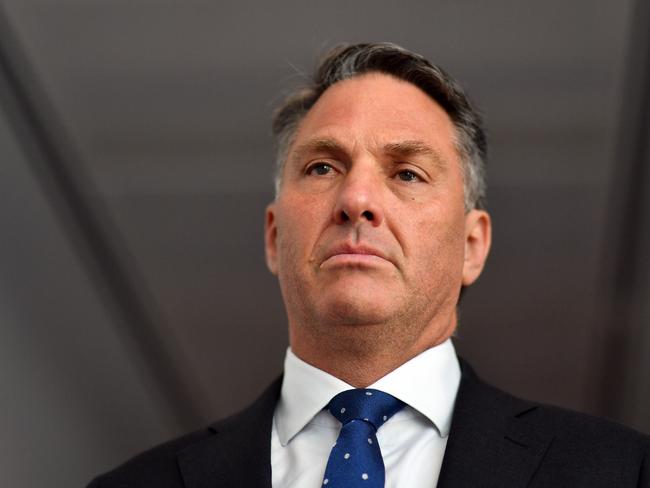
Last week, the bill which gives Senator Payne the power to veto agreements states, territories, universities and local governments have with foreign powers passed in both houses of parliament. But a consequential amendment bill remains stuck in parliament. South Australian senator Rex Patrick successfully amended the bill so that states, local councils and universities that have their foreign deals overturned could challenge Senator Payne’s decisions if they believe she misused her power.
“It was rushed into the parliament. It is full of flaws. We have been very concerned about it,” Mr Marles told the ABC.
He said Labor had reluctantly supported the legislation.
“We are asking for the government to sit down with us and talk this through so we can see the reasonable objective that is contained in the bill, realised through good legislation, but what we have got at the moment is something which is really half-baked.”
READ MORE: Farm exports hit by $3.5bn in China stoush
Angelica Snowden 10.43am: Passenger on plane with Germans ‘incredibly angry’
A passenger on board the Sydney to Melbourne flight on Saturday with two German travellers who slipped through hotel quarantine says he is “incredibly angry”, despite the pair so far testing negative to COVID-19.
The passenger, Howard Levy, said while it was “freedom day” for most in Melbourne he and 176 other passengers nervously awaited their test results in isolation.
“I flew down here to meet my eight-day-old cousin and then this happens,” Mr Levy told the Nine network’s Today Show.
“So you know whatever the politicians are telling you is absolutely rubbish. I’m actually very angry,” he said.
“What I saw on TV last night, I think it was the Federal Health Minister talking about rings of containment designed to protect citizens … There is no ring of containment. They were just lucky that these people weren’t infected and somebody was there to stop them.”
Mr Levy said he was especially concerned because his wife worked in an aged care facility.
“I think most Australians are tired of these investigations and worthless apologies because they have to deal with the consequences,” he said.
READ MORE: Virgin’s frequent flyer counter-attack
Agencies 10.39am: Giuliani hospitalised with Covid
Rudy Giuliani, who has been leading President Donald Trump’s effort to challenge the results of the presidential election, has been admitted to a Washington hospital and has tested positive for Covid-19, a person familiar with his condition said.
Mr Giuliani, who is 76 years old, was admitted to Georgetown University Medical Center, the person said. The severity of his condition was unclear. Earlier on Sunday (US time), Mr Trump had said on Twitter that Mr Giuliani had tested positive for the coronavirus.
Mr Giuliani, the president’s personal attorney, has been travelling on behalf of the president’s unprecedented push to reverse his election loss, attending hearings in Pennsylvania, Arizona, Michigan and Georgia. Two Republican state senators in Pennsylvania who attended a Nov. 25 meeting with Mr Giuliani have since said they tested positive. Mr Giuliani didn’t wear a mask in those hearings.
Jenna Ellis, a legal adviser to the Trump campaign who has worked closely with Mr Giuliani, tweeted that the legal team’s work “won’t be affected and we press on.” The effort to overturn the election result has faced dozens of court losses. There is no evidence of widespread fraud in the balloting.
Mr Giuliani has been exposed to several people with Covid-19 in recent months. He attended the president’s debate preparations in late September, after which several advisers and the president himself tested positive. Mr Giuliani’s son, Andrew Giuliani, tested positive last month. Earlier this month, Mr Giuliani’s communications director, Christianné Allen, had tested positive for the virus, she said.
Ms Allen didn’t immediately respond to a request for comment on Mr. Giuliani’s condition. — Dow Jones Newswires
READ MORE: Trump campaign suffers double blow
David Rogers 10.30am: ASX surprises with 1.2pc surge
Australia’s sharemarket rose a stronger-than-expected 1.2pc to an 8-day high of 6711.4 on broad-based gains.
A daily close above 6683.3 would set a fresh 9-month high on a daily close basis and a break above 6713.3 would set a fresh 9-month high on an intraday basis.
S&P 500 futures rose 0.3pc after a Republican senator said Republican leaders Trump and McConnell will back a $908bn pandemic relief package.
US futures gains added to the strength in Australian shares where the Materials, Energy, Tech and Real Estate sectors outperformed.
Resource-sector heavy weights BHP, Rio Tinto and Fortescue surged 2.6-3.4pc after Macquarie boosted their price targets after commodity price gains.
Santos rose 3.3pc after WTI crude oil rose 1.4pc to $US46.26 a barrel.
Banks rose on the back of a jump in bond yields with NAB up 1.1pc.
Metcash surged 8.5pc after strong first half profit and a strong start to the financial year.
Xero rose 3.2pc after Goldman Sachs initiated with a Buy rating.
FOLLOW live ASX updates at Trading Day
Remy Varga 10.03am: First international travellers touch down in Melbourne
The first flight carrying international travellers to land in Melbourne since June arrived just before 8am on Monday morning.
Coming from the Sri Lankan city of Colombo, the UL604 is the first of around eight flights to land in Melbourne.
A new revamped quarantine program has begun in Melbourne after the first iteration sparked the state’s devastating second wave, prompting Victoria to cease accepting returning travellers.
READ MORE: How pandemic has spurred innovation in healthcare
Lachlan Moffet Gray 9.56am: Columnist to take stand in defamation case
Dr Elaine Stead’s defamation case against Joe Aston will resume shortly, with the Australian Financial Review columnist set to appear in the witness box for the first time.

Dr Stead, a former executive director with the now collapsed ASX-listed fund manager Blue Sky, alleges that the Nine-Fairfax columnist defamed her in two Rear Window columns he published in February and October last year as well as in a tweet.
Mr Aston’s columns stated Dr Stead “deliberately destroyed the capital of business ventures with which she was associated” and “wantonly lost millions of dollars entrusted to her”.
Dr Stead’s lawyer Sue Chrysanthou on Friday alleged the columns from Mr Aston conveyed a range of defamatory meanings, including that she was “cretinously stupid” and “made stupid investments in two worthless companies” including Shoes of Prey.
Giving evidence last week Dr Stead told the court that Mr Aston’s characterisation of her as “stupid’’ and as having made “fatuous” investments in “peanut start-ups” was something that “embarrassed and mortified’’ her.
She said she was particularly hurt by Mr Aston’s claim that she was a “venture capital pyromaniac’’.
Fairfax’s original defence was going to rely on truth as well as “honest opinion”, but the truth defence was dropped shortly ahead of the trial.
Instead, Mr Aston’s lawyer Sandy Dawson, SC said venturing those statements was “classic language of opinion”.
“It’s clearly meant to be a witty way of dealing with the issue,” Mr Dawson said.
Mr Aston was scheduled to Friday Mr Dawson asked for this to be delayed until Monday as the columnist had only been released from two weeks of hotel quarantine.
FOLLOW Stead v Aston live here
READ MORE: Media Diary — Why Laura Tingle hit back at trolls
Adeshola Ore 9.31am: Casual workers worse off under bill: McManus
ACTU secretary Sally McManus says casual workers will be worse off under the federal government’s proposed industrial relations changes.
The bill, which the government says will give casuals greater rights to convert to permanent employment, has been backed by business but sparked anger from unions. Under the bill, employers will be required to offer part-time or full-time roles to people after 12 months if they have worked a regular pattern of hours for the previous six months.
“It allows employers to whack a label on you and call you a casual when you are not,” Ms McManus told Nine.
“If your employer doesn’t convert you or doesn’t offer a conversion there is nothing that you can do about it. There is no Fair Work Commission to go to.”
The proposed bill followed months of talks with between the government, unions and business groups. Ms McManus the union had “only just seen the detail” of the bill.
“It is what some of the more extreme employers wanted. They want to call people a casual worker even if you have ongoing work. They don’t want workers to access the Fair Work Commission to get an individual umpire to help.”
READ MORE: Editorial — Jobs agenda drives new wave of reform
Angelica Snowden 9.19am: Where risks for Australia’s third wave lie
Melbourne and Sydney are most at risk of a third wave of coronavirus due to high numbers of international arrivals as Victoria prepares to reopen it’s hotel quarantine, epidemiologist Raina MacIntyre says.
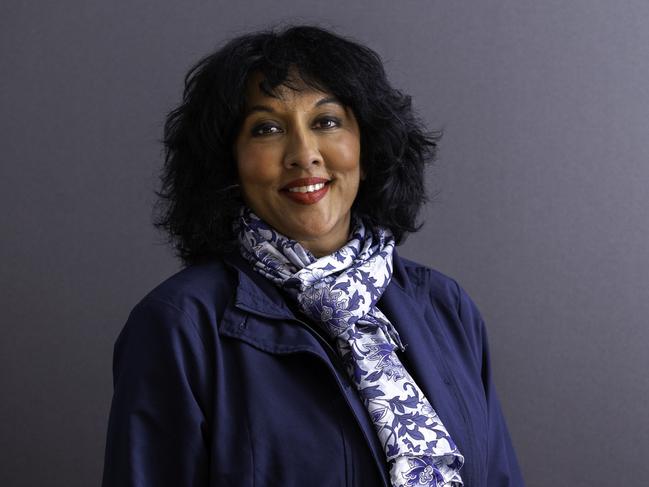
“Sydney and Melbourne are at most risk because they get the most international travellers and that is where the cases are going to come from, but I think the bigger problem is we haven’t really addressed the transmission,” Professor MacIntyre told Channel Seven’s Sunrise.
“It is spread through aerosols and we need ventilation in the hotels,” she said.
“The hotels need to have a plan to be selected on whether they were built in the last few years to comply with standards with ventilation, or really old hotels where you can open windows are a good idea because fresh air and ventilation will make all the difference to the risk in those buildings.”
Professor MacIntrye said airports should make better use of QR codes to improve digital tracking and tracing.
“That would also potentially prevent breaches such as we saw at Sydney Airport recently with people from an international flight getting on another domestic flight and going to Melbourne,” she said.
“You could have the QR code system and make it mandatory so when you come off a plane, you have to scan the code and then you are categorised into red or orange, or anyone coming from international going to red … when you exit the customs queue, you are scanned at every step so you cannot suddenly branch off and go somewhere you are not supposed to go.
“We could be making much better use of those QR codes.”
READ MORE: The key to Covid immunity
Adeshola Ore 8.57am: Reynolds backs disbanding of SAS squadron
Defence Minister Linda Reynolds says she supports the disbanding of a Special Air Service squadron following a damning report into allegations of war crimes.
The Brereton report revealed Australian special forces soldiers had allegedly murdered 39 Afghan civilians and prisoners. On Monday, The Daily Telegraph reported that special forces soldiers were in an uproar in response to their squadron being disbanded.
“Given the gravity of the circumstances that have led to that, I fully support that,” Senator Reynolds reporters in Canberra.
Deputy Labor leader Richard Marles said the Defence Force should be given space to implement the Brereton Report’s recommendations.
“Whichever way Defence steps in relation to this, there is criticism and obviously one can understand that,” he told reporters in Canberra.
“Defence actually does need to work its way through this. We’re keen to give the government the necessary space to deal with this.”
Senator Reynolds said a scheduled parade to commemorate the squadron, that was due to take place on Monday, had been delayed and not cancelled.
“The CDF has asked for all actions that are in response to the Brereton Report be done under his implementation plan. So my understanding is it’s been delayed to be part of the CDF implementation plan.”
READ MORE: Questions of culture prove to be prescient
Angelica Snowden 8.47am: Quarantine exemptions ‘few and far between’
Melbourne airport CEO Lyell Strambi says he is impressed NSW police took quick accountability for allowing two German travellers to slip through hotel quarantine, but the slip up was disappointing.
“We adopt the approach that any near miss … should be making us stronger and so we look to learn from that and make sure we don’t make the same mistakes,” Mr Strambi told the ABC.
He said a security guard at Melbourne airport spoke with the travellers and identified the clear breach in health protocols.
“I don’t have a lot of detail on this … I do know (the) security guard overheard a conversation obviously between these passengers and made further inquiries, which is really good,” he said.
“The passengers were kept aside from everybody else and then it was escalated up through our chain of command and I got a text to say this event had occurred.”
A NSW police officer mistakenly thought the travellers had an exemption from hotel quarantine and allowed them to board a domestic flight from Sydney to Melbourne.
There are 125 international arrivals expected in Melbourne airport today who will mark the resumption of Victoria’s hotel quarantine system which was closed for about six months.
“All of those passengers are dealt with very separately to anybody arriving from New Zealand and of course very separately again from the domestic passengers coming through the airport,” he said.
“Their health will be checked as they off the aircraft (and) they kept completely separate all the way through that process.
“They get through the border where those checks will be done (and) exemptions are few and far between.”
READ MORE: Competing bids — Beachside beauty sells for $4.8m
Rachel BAxendale 8.37am: No Victorian cases as first new international flight lands
Victoria has recorded its 38th straight day with no new known cases of coronavirus, and its 14th day with no active cases.
Yesterday there were 0 new cases and 0 deaths reported. There were 4,912 test results received. There are 0 active cases across Victoria. #EveryTestHelps #StaySafeStayOpen https://t.co/pcll7ySEgz #COVID19Vic #COVID19VicData pic.twitter.com/7kAx3SK7Fr
— VicGovDHHS (@VicGovDHHS) December 6, 2020
The numbers come after 4912 tests were processed in the 24 hours to Monday, and as the first international flight of returning passengers since June touched down at Melbourne airport on Monday morning, amid the reopening of Victoria’s hotel quarantine program.
READ MORE: Canada plugs gap as China shuns Aussie coal
Adeshola Ore 8.30am: Workplace bill to clarify casual employment definition
Finance Minister Simon Birmingham says the federal government’s industrial relations bill will encourage business to hire by introducing a clearer definition of casual employment.
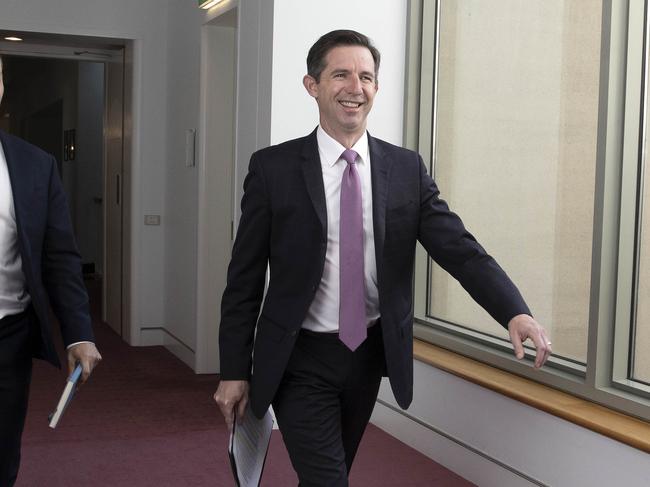
The bill, which will be unveiled this week, seeks to deny “double dipping” claims by allowing employers to offset previously paid casual loadings against a leave claim by a casual found by a court to be permanent. It follows a landmark Federal Court ruling that workers on regular casual shifts were entitled to seek paid leave.
Mr Birmingham said the bill aimed to “find the right sweet spot in the IR landscape.”
“It will protect workers, their entitlements and their rights but also does so in a way that protects employers from risks of pay-out claims and enables job creation to happen,” he told the ABC.
Under the bill, employers will also be required to offer part-time or full-time roles to people after 12 months if they have worked a regular pattern of hours for the previous six months.
READ MORE: Workplace shake-up to get firms hiring
Adeshola Ore 8.22am: NSW needs to tighten airport safeguards: Birmingham
Finance Minister Simon Birmingham says a further tightening of NSW’s international process is essential after a weekend airport bungle saw two passengers bypass mandatory quarantine.
On Saturday, a Sydney police officer mistakenly allowed a 53-year-old woman and her 15-year-old son to skip hotel quarantine arrangements and fly direct to Melbourne without appropriate exemptions.

Mr Birmingham said Australian Border Force officials would work with NSW police to strengthen the airport’s safeguards.
“There will be a closing of the net in response to this challenge,” he told the ABC
“But pleasingly with Victoria and South Australia coming back online that will lift the total number of Australians who can get back each week to 6,700 and that’s good news for those people in tough situations overseas.”
He said the bungle at Sydney airport was a “firm reminder that this is a fraught and risky process.”
READ MORE: Voluntary tech ‘bullies’ code panned
Angelica Snowden 8.15am: Victoria ‘disappointed over NSW breach’
Victorian Health Minister Martin Foley says he is disappointed two German travellers were allowed to board a flight from Sydney to Melbourne without going into hotel quarantine.
“Of course we are disappointed,” Mr Foley told the Nine network’s Today Show.
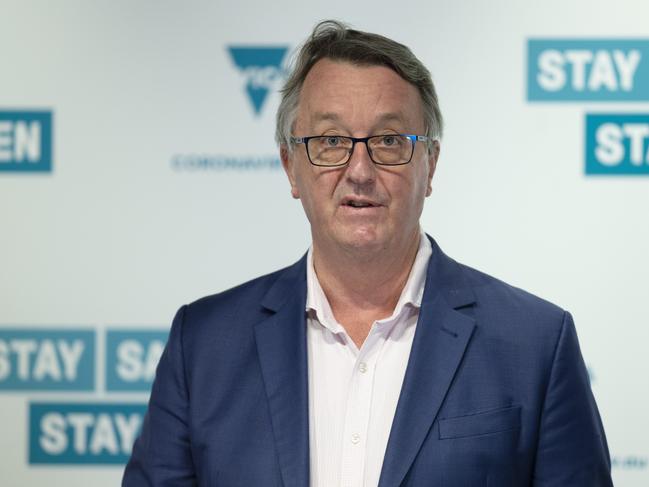
“I was pleased that NSW Police fronted up and owned the issue so quickly,” he said.
“I am confident working with NSW Health with the Victorian health people that we can put in place a system that can learn from that and make sure that all of those 36,000 Australians that want to come home by Christmas, can get here as soon as possible.”
Mr Foley said Victoria’s hotel quarantine system will be “rigorous” as it prepares to welcome overseas passengers for the first time in about six months.
“We have made sure that we have got a rigorous system with a direct line of control headed by our Corrections Commissioner and overseen by the police and ADF,” Mr Foley said.
“No contract security. Everyone just works the hotel quarantine process and we are as confident as we can be that we have a rigorous and safe system that will get all of these Australians home in time for Christmas and make sure that we prevent the infection leaking out from hotels,” he said.
“Whether it is South Australia, Sydney over the weekend and in our jurisdictions, no system is perfect. But we’re pretty sure that we’ve got a very rigorous system in place.”
READ MORE: Victorian limits eas just in time for Christmas
Angelica Snowden 8.12am: German traveller blunder ‘warning on quarantine’
Northern Territory Senator Malarndirri McCarthy has warned a NSW police security blunder — which saw two German travellers board a domestic flight to Melbourne without quarantining after landing in Sydney — is a sign even greater attention needs to be paid to COVID quarantine rules.
"We have an issue with trust with the government in terms of workers... I don't feel comfortable with what I've seen so far...clearly, we've got a fair way to go on this." @Malarndirri19 on changes coming to workplace laws. #9Today pic.twitter.com/djX9zVzC67
— The Today Show (@TheTodayShow) December 6, 2020
“As we come to (the end) of what has been an exhausting year … We have to be on greater alert,” Senator McCarthy told the Nine network’s Today Show.
“This is when those sorts of things can happen and become something that we don’t want it to be,” she said.
Ms McCarthy also said Australia has “a fair way to go” amid changes to casual worker laws.
“One of the things that I’m concerned about is that we have an issue with trust with the government in terms of workers,” she said.
“Whether this is really going to hit the mark on protecting the rights of the current workers as well as those going forward, is the area that I’ll certainly be looking at.”
Ms McCarthy also lauded Australia’s national rugby union team for singing the anthem in an Indigenous language at a game on Saturday.
🖤💛â¤ï¸ AMAZING! SO PROUD! #AUSvARG #YourTeam #OurJourney #Wallabies pic.twitter.com/A65tCwrwG5
— Wallabies (@wallabies) December 5, 2020
“I thought it was absolutely beautiful,” she said.
“I think anything that does try to bring our country together has to be a good thing.
“Hearing First Nations languages even more – whether it’s in the anthem or even spoken in other areas or even used in terms of the names of suburbs and streets — brings about a better … playing field for that respect and understanding.”
READ MORE: Hope rises as sun sets on WA’s ‘hard border’
Angelica Snowden 7.35am: Trump announces that Giuliani has virus
Rudy Giuliani, who has been leading Donald Trump’s effort to overturn the election results, has tested positive for Covid-19, according to the US President.
.@RudyGiuliani, by far the greatest mayor in the history of NYC, and who has been working tirelessly exposing the most corrupt election (by far!) in the history of the USA, has tested positive for the China Virus. Get better soon Rudy, we will carry on!!!
— Donald J. Trump (@realDonaldTrump) December 6, 2020
Mr Trump tweeted on Monday (AEDT): “@RudyGiuliani, by far the greatest mayor in the history of NYC, and who has been working tirelessly exposing the most corrupt election (by far!) in the history of the USA, has tested positive for the China Virus. Get better soon Rudy, we will carry on!!!”
READ MORE: Trump — ‘We’re winning this election’
Angelica Snowden 7.20am: US records 230,000 new cases, 2527 deaths
The US has notched a record number of coronavirus cases in 24 hours for the third day running as many Americans continue to flout public health rules, including refusing to wear masks.
A tally by Johns Hopkins University showed the world’s worst-hit country – which has seen a dramatic virus resurgence in recent weeks – reached nearly 230,000 new infections and 2,527 COVID-related deaths on Saturday alone.
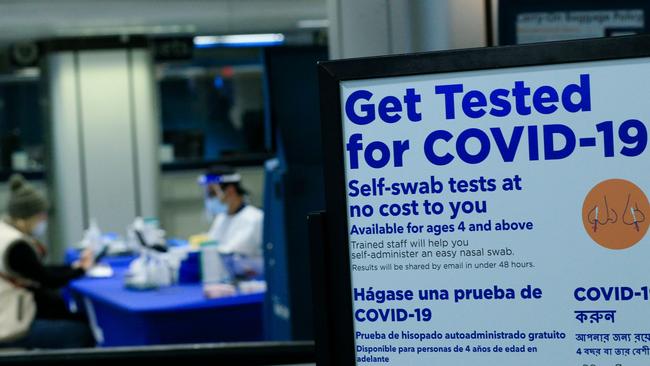
For two weeks, the US has regularly topped 2,000 deaths per day, as it had in the spring at the height of the first wave of the country’s outbreak.
There were 2,426 deaths reported on Sunday according to the World Health Organisation.
US health officials warned of a surge after millions of Americans travelled to celebrate last week’s Thanksgiving holiday despite pleas from authorities to stay home.
On Sunday US health officials were alarmed many Americans continued to refuse to wear masks amid the soaring case and death tally.
With the rollout of new vaccines expected in just weeks, the officials warned against false confidence – particularly with year-end travel still ahead.
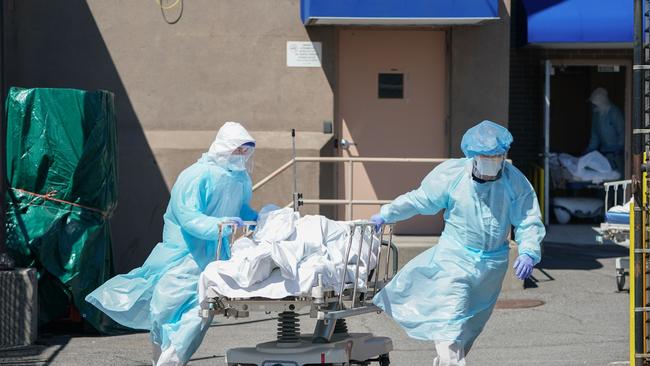
White House coronavirus task force co-ordinator Deborah Birx said it was “frustrating” to hear people “parroting back that masks don’t work (and) that gatherings don’t result in superspreading events.”
“This is not just the worst public health event. This is the worst event that this country will face,” Ms Birx said.
She told NBC the “vaccine is critical”, but it would not “save us from this current surge.”
Health and Human Services secretary Alex Azar confirmed Sunday the government expected 20 million people to receive vaccines from manufacturers Pfizer and Moderna before the end of the year if the Food and Drug Administration approved it this week.
Federal vaccine program Operation Warp Speed head Moncef Slaoui told CBS that vaccinations could begin with 36 hours of FDA approval.
But experts expressed exasperation that many Americans continue to ignore guidance to wear masks, practice social distancing and avoid large crowds.
For the first time since the election Donald Trump held a rally on Saturday, but basic health measures were flouted.
The packed rally was held in Valdosta, Georgia. Thousands of people attended and few wore masks.
The president has long minimised the severity of the pandemic, and at his rally barely mentioned the virus.
COVID-19 has now killed more than 1.5 million people and infected 66 million around the world since emerging in China last year, according to a tally from official sources compiled by AFP.
READ MORE: Paris streets on fire over security laws
Angelica Snowden 6.55am: Cases surge across Europe as vaccines rolled out
The COVID-19 mortality rate in Italy remains the worst in Europe and one of the most severe in the world, but there is fresh hope for the continent as a vaccine starts to roll out in Russia and Britain.
More than 60,000 people have died from COVID-19 in Italy, the first European country to be hit hard by the coronavirus.
It has recorded 60,078 deaths from 1,728,878 infections, the health ministry reported.
Despite all the steps the government has taken to curb the latest outbreak and care for the sick, hundreds of people are dying daily.
On Thursday, Italy recorded a record 993 deaths, the highest toll since the epidemic erupted in the first months of the year.
With one death per 1,000 inhabitants, Italy is suffering from one of the world’s worst tolls in Europe and the world.
Its mortality rate, or the ratio of deaths to infections, stands at 3.47 per cent. Only Britain has a higher rate in Europe with 3.55 per cent.
By comparison, Spain’s rate is 2.75 per cent and France is at 2.35 per cent.
Italian Health Minister Roberto Speranza warned against easing steps taken to curb the virus during the holiday season.
“If we drop our guard, we run the risk of finding ourselves in January and February facing a new (infection) surge,” Mr Speranza said on SkyTG24 television.
“And that we cannot allow.”
Across Europe there were 203,298 new COVID infections recorded on Sunday, according to the World Health Organisation.
There have now been almost 20 million coronavirus cases reported on the continent since the start of the pandemic.
Britain
In Britain, it was reported the Queen will receive the Pfizer-BioNTech coronavirus vaccine within weeks after UK regulators granted emergency approval. The rollout of the vaccine will begin next week.
The 94-year-old monarch and her 99-year-old husband Prince Philip are in line to get the jab early due to their age and will not receive preferential treatment, the Mail on Sunday reported.
The newspaper said Britain’s most senior royals would reveal they have been given the inoculation “to encourage more people to take up the vital jab”, amid fears so-called anti-vaxxers could dent enthusiasm for it.
British health officials are set to use criteria based on age and vulnerability to decide who gets the vaccine first.
Elderly care home residents and their carers will be the very first to get inoculated, followed by those aged 80 and over and frontline health and care staff.
Britain has pre-ordered 40 million doses of the vaccine in total, and is set to receive an initial batch of 800,000 to begin next week’s rollout.
Russia
The World Health Organisation has warned that vaccines are no magic bullet for the coronavirus crisis, as Russia started vaccinating high-risk workers.
The WHO cautioned against what it said was an erroneous belief that the pandemic would end soon with vaccines on the horizon.
“Vaccines do not equal zero Covid,” said WHO emergencies director Michael Ryan, adding that not everyone will be able to receive it early next year.
“Vaccination will add a major, major, powerful tool to the tool kit that we have. But by themselves, they will not do the job.”
Health officials in Moscow said they had opened 70 coronavirus vaccine centres in the Russian capital that would initially offer jabs for health, education and social workers.
The WHO says 51 candidate vaccines are currently being tested on humans, with 13 reaching final-stage mass testing.
The US is expected to give a green light to vaccines later this month, while Belgium, France and Spain have said jabs will begin in January for the most vulnerable.
With AFP
READ MORE: Mental health support shunned
Kieran Gair 6.15am: Virgin’s frequent flyer counter-attack on Qantas
A war for the wallets of well-heeled business travellers has erupted, with Virgin Australia launching a counter-attack on Qantas over its plan to lure the airline’s most loyal passengers across to its frequent flyer scheme.
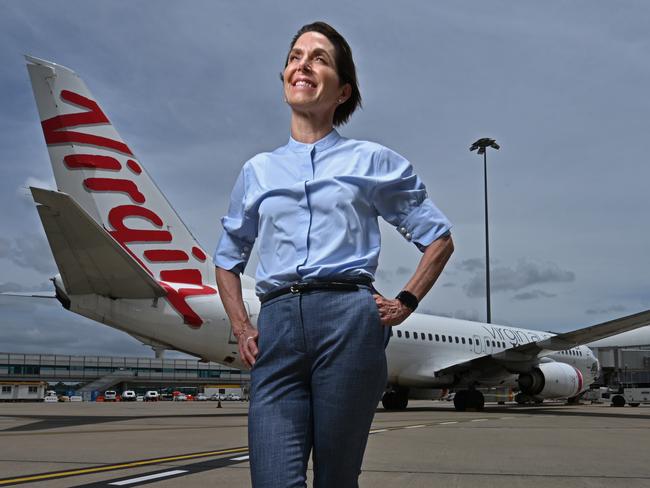
In a shot across the bow of Qantas, Virgin Australia said the company would “invite” people with Qantas Frequent Flyer Gold status and above to receive a Velocity Discover Gold Status trial membership for three months, which will include “lucrative bonus points” when customers book and fly with the airline.
The carefully curated pitch, described by Virgin as the company going “one better” on frequent flyer offers, is a direct challenge to Qantas’s decision last month to “fast track” top-tier Velocity members to Gold status on the airline’s own frequent flyer scheme.
Under Virgin’s initiative, those who hold eligible loyalty status with Qantas can retain Velocity Gold Status for 12 months and receive a membership for their companion if they take one eligible flight and earn 80 status credits during a three-month trial period.
During that “trial” period, people who apply by December 21 will be entitled to lounge access, priority boarding, extra checked baggage, and preferential seating.
Virgin Australia CEO Jayne Hrdlicka said the company’s frequent flyer program had retained its popularity with its 10 million members throughout the COVID-19 crisis.
READ the full story
Yoni Bashan 6.00am: How German pair skipped quarantine
An electronic boarding pass to catch a connecting flight to Melbourne and an inexperienced police officer saw Australia’s tough security measures lost in translation as two wayward German travellers sparked a major coronavirus scare and forced 176 people into isolation.
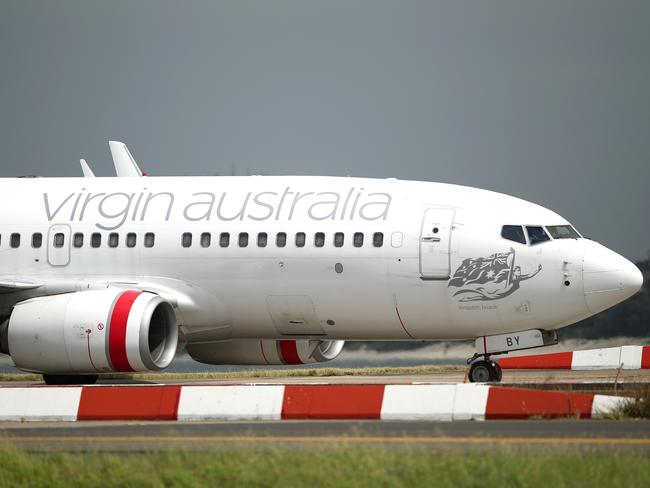
The airport bungle saw the Sydney police officer mistakenly allow a 53-year-old woman and her 15-year-old son to bypass hotel quarantine arrangements and fly direct to Melbourne without appropriate exemptions.
The NSW Police Force on Sunday took full responsibility for the decision, which allowed the pair to fly from Sydney to Melbourne on Saturday after stepping off a flight from Frankfurt via Tokyo.
Deputy Commissioner Jeff Loy put the bungle down to communication difficulties between the officer and the Germans.
“They had a conversation with an officer, and during that conversation there has been a misunderstanding and a lack of communication,” Mr Loy said.
“It was thought by the police officer that there was actually an exemption in place. We’ll own the mistake and we’ll move forward.”
READ the full story
Jacquelin Magnay 5.40am: England-South Africa ODI cancelled over COVID-19
The England cricket team’s tour to South Africa has collapsed following the positive coronavirus tests of two team members, raising concerns about future Australian sporting contests.
A one-day international match in Cape Town was immediately cancelled on Sunday and the one-day series was postponed for the second time.
The news comes days after the F1 star Lewis Hamilton contracted COVID-19 and missed the Sakhir Grand Prix, despite stringent bio-secure bubbles and constant testing of drivers, the teams and everyone in the F1 paddock.
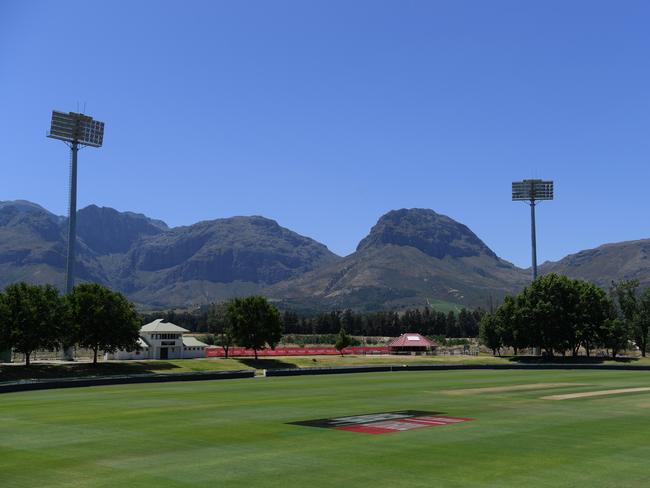
Hamilton, the seven-time world champion, was struggling with the illness, Mercedes team boss Toto Wolff said, with the 35-year-old in doubt for next week’s season-ending Abu Dhabi Grand Prix.
If the bio-bubble precautions have failed to stop the virus in international cricket and F1 despite rigorous procedures in place, it raises concerns for Australia’s hosting of major sporting events in the summer, such as the Australian Open tennis and the F1 at Albert Park.
Some England players are due to arrive in Australia for the Big Bash once South African commitments finish at the end of the week.
Just one hour before the cricket was due to start it was revealed that members of both England and South Africa were isolating in their hotel rooms after two hotel staff tested positive to the virus.
READ the full story
Geoff Chambers 4am: Healthcare jobs pandemic’s most resilient
Scott Morrison’s post-pandemic training reforms — aimed at getting Australians into stable jobs and plugging skills gaps across the economy — will be underpinned by new National Skills Commission data identifying the nation’s most resilient occupations and high-demand industries.
A major report to be released by the independent commission today shows demand for jobs in the healthcare, social assistance, construction, mining, transport, education and training sectors will remain high.

The Shape of Australia’s Post COVID-19 Workforce report says the most resilient jobs are dominated by the health sector, including nurses, GPs, those in aged care and disability, and mental health professionals, as well as the transport, agriculture and education sectors, with ongoing demand for high school teachers, plant operators and delivery drivers.
The NSC’s occupational resilience framework, set up to support the Prime Minister’s JobTrainer program, was established to inform the government’s skills and training policies and guide career decisions.
National Skills Commissioner Adam Boyton told The Australian there were “signs of recovery” in the labour market, as the states and territories continue to reopen their economies and contain the COVID-19 spread.
The NSC’s monthly Internet Vacancy Index showed activity fell sharply as the pandemic peaked. There has been steady improvement through to October, with job advertisements increasing by 6.2 per cent.
The report says the number of newly advertised jobs has increased for six consecutive months and had “more than doubled from the April series low point — up by 83,300 job advertisements”.
Continue reading here.
Tessa Akerman 3.45am: Limits ease just in time for Christmas
From a crowded pub to a crowded dancefloor at a wedding, more Victorians can come together in celebration, under new density limits, with the easing of restrictions overnight.
Premier Daniel Andrews announced a raft of easing restrictions from 11.59pm on Sunday, the 37th day of no new COVID-19 cases in Victoria, but warned people to remain vigilant to protect the new “COVID-safe summer”.
Pubs, cafes and restaurants can now host one person per two square metres, for both indoors and outdoors, with no other cap. Small operations will have no density limits if there are fewer than 25 patrons.
Mr Andrews also announced mandatory electronic record-keeping, through QR codes.
“Records matter so we think it’s a proportional measure,” he said.
By January 11, depending on the public health advice, half of all office workers can return and up to 25 per cent of the public service.
Mr Andrews also brought forward a 30-person limit of visitors to one household per day and eased up on the wearing of face masks. Masks must still be carried at all times, and worn on public transport, in ride-share vehicles or taxis, and in some retail settings including supermarkets and indoor markets.
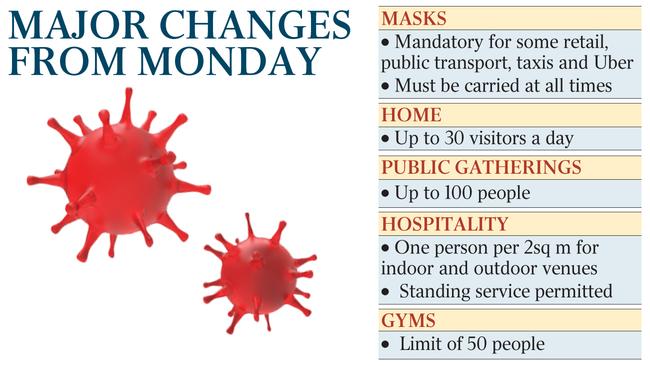
Read the full story here.
Dow Jones 3.30am: Is East Asia the key to COVID-19 immunity?
An enduring mystery of the COVID-19 pandemic is why East Asian countries across the board have experienced far fewer cases and deaths than the US and Europe.
Some doctors and scientists are beginning to take a closer look at theories that some people in East Asia and Southeast Asia have had different exposure to previous coronaviruses resembling the SARS-CoV-2 virus sweeping the globe. Such exposure could have protected them from getting sick from COVID-19 or lessened the severity of the disease.

Others doubt that the immune systems of people in the region differ from people in the rest of the world in any systematic way. They suspect cultural factors and, in some countries, government policies such as tightly enforced quarantines are playing the main role.
Whatever the case, doctors agree that some explanation is needed for why Japan, South Korea, China, Vietnam, Taiwan, Malaysia and Singapore all have experienced at most a few thousand new SARS-CoV-2 infections a day, even during the current surge. That compares with tens of thousands of daily cases in many European nations and more than 150,000 new cases on many days in the US.
Yasuhiro Suzuki has pondered the question as the highest-ranking doctor in the Japanese Ministry of Health, Labor and Welfare’s medical corps until his retirement in August.
“There’s a theory, and I think it’s quite a strong one, that in East Asia a cold similar to the novel coronavirus spread widely and a large number of people caught it,” Dr Suzuki said.
“As a result of having immunity to a similar virus — although it isn’t bulletproof immunity — they either don’t develop it or don’t get seriously ill if they do,” he said, referring to COVID-19.
Wall Street Journal
Read the full story here.




To join the conversation, please log in. Don't have an account? Register
Join the conversation, you are commenting as Logout